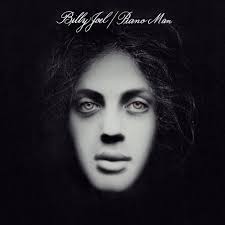On February 1 this year, Billy Joel released “Turn The Lights Back On,” one of his few singles since his last album, 1993’s River of Dreams. This song was also his first one to make the Billboard 100 since 1997. After listening to it, I realized how much I liked Billy Joel’s music, which varies from jazz to rock to pop. He had a long and successful career, to which I want to pay tribute. In this article (and part II? and maybe III?), I hope to convince you to like Billy Joel’s music as much as I do.
To better appreciate Billy Joel’s music, first we should learn about his early life, inspiration, and previous bands and musical projects. William Martin Joel was born in 1949 and took classical music lessons for much of his childhood. He quickly decided that he wanted to be a musician, and began to play piano at bars for some cash. He never completed high school, instead going off to start his music career.
Before he started his long career as Billy Joel, he was part of several bands. First, from 1965 to 1967, Joel worked on The Echoes, who changed names several times (to the Emeralds and then the Lost Souls) and performed covers of many older songs. Then there was The Hassles, his most famous band, with which he released two albums between 1967 and 1969. Neither was particularly successful, but they had a profound impact on his career and were the first pieces of music he wrote. Joel broke up Attila, his final band, in 1970, because of the total failure of their first and only album. (Also, because he had an affair with the drummer’s wife.) Next, Joel decided to move on to start his solo career.

He started out with Family Productions as his record company, where he worked on his first album, Cold Spring Harbor, eventually releasing it in 1971. It completely flopped, mainly due to a technical error where the track ran too fast, despite the great expense Family Productions and Billy Joel put into making this album. However, many of the songs are excellent, even though it was his first album and he was still developing his style. They were not discovered by many until their live rerecording and release on Songs in the Attic. Many of the songs in this album have a tenderness that is not easily found in the rest of his output. Other than this, the songs varied in styles and length and mainly focused on the piano as the center of the melodies.
Cold Spring Harbor
Rating: 6.5/10.
Favorite song: “Tomorrow is Today.”
Changes would come soon. After a blowout over the technical issues in Cold Spring Harbor, Joel decided that he had enough with Family Productions. He fought to leave the contract that he signed with them, which was eventually bought by Columbia Records. Despite his no longer working with Family Productions, they strangely still had some royalties for many of his following albums. [Ed. Note—have we got news for you about how messed up the music business is.]
After a hiatus for touring and working in a piano bar, Joel released his second album, Piano Man. Although it sold better than his first album and would produce his signature song, this album still failed to bring him critical acclaim. Though generally a more melancholy album, Piano Man carries some faster tracks that cut through the deep ones.
Piano Man
Rating: 7/10.
Favorite song: “Somewhere Along the Line.”
Living and working in Los Angeles allowed Joel to see both the world of the suburbs and that of the city. This unique view would be the inspiration for many of the songs in his next album. One year after the release of Piano Man, in 1974, Billy Joel released Streetlife Serenade. A much more upbeat album, Streetlife Serenade still failed to catch the public eye, especially with no major single to support it. I personally think it is a slight regression from the first two albums, especially because it is the album I forget the most.
Streetlife Serenade
Rating: 5.5/10.
Favorite song: “Los Angelenos.”
Despite technical mishaps and bad record deals, Billy Joel was able to make some great music at the beginning of his career. Unfortunately, he did not reach real critical acclaim until The Stranger, which would be released several years later. I hope that in this article I have convinced you to at least give him a chance.
If not, there is good news, as Billy Joel wrote many more albums, so we’ll see you in part II, and probably III!
